Sunday, March 4, 2012
KEEPING MYSELF PHYSICALLY ACTIVE, INTELLECTUALLY ALIVE, & SOCIALLY INTERACTIVE, AS PART OF MY 'RETYRING' IN HO CHI MINH CITY
Ever since I have had the opportunity to read the genius behind "image streaming" Dr Win Wenger's classic, 'How to Increase Your Intelligence', back in the seventies or so, I have always been fascinated by the power of the human brain, notwithstanding its numerous intricacies and idiosyncracies.
As a matter of fact, I had even communicated with the genius himself via snail mail as well as fax machine, because I was eager at that time to obtain more material from him, other than those that had already been published. He was very kind to oblige. Thank you, Dr Win Wenger!
By the way, I have had also the opportunity to communicate with Japan's inventor extraordinaire with more than 3,000 patents to his name, Dr Yoshiro Nakamatsu, or better known internationally as Dr Nakamats, who also happens to be a renowned brain expert himself on this side of the world.
Unfortunately, all his published works are available only in the Japanese Language. [Nonetheless, I own two of them, as I can read Chinese, which gives me the facility to read about 50% of what he had written.]
Another brain expert, with whom I am still in touch occasionally, is none other than my 'mentor', Dudley Lynch, President of Brain Technologies Corporation, and author of the classic, 'Your High Performance Business Brain: An Operator's Manual', among other great works, all of which I have had the opportunity to peruse and digest during the mid-eighties, and subsequently in later years.
Since then, I have in fact developed an insatiable thirst - and subsequently, instituted a life-long quest - to acquire and read up all the good books about brain fitness and intelligence amplification.
In my personal library of some 5,000 assorted books, more than 20% are related to optimum brain performance.
Over the years, I have developed my own habitual routines in maximising brain-power, and I naturally have stood on all those brilliant giants well before me.
I like to share with readers what I have explored and synthesised, but first things first.
The brain is our pre-eminent information processor and perpetual idea generator. It is already hard-wired that way since birth, irrespective of whether we like it or not. The only problem is that it didn't come with an operating manual.
So, we have to seek many different ways to understand how it works, and more importantly, how to cultivate its latent power.
Here are a few important things that I have discovered about the brain.
We have to use the wonderful mass of grey matter lodged inside our head more often, so that we can get more mileage from its continuing usage.
Interestingly, there is such a thing as "neuroplasticity" in the brain.
I have learnt that, as long as we continue to thrive on learning new things; creating novelty and variety in our lives; designing stimulating environments where we live, work and play; seeking new physical as well as intellectual horizons to challenge ourselves; and also to accept whatever challenges and obstacles that come along with the learning pursuits, "neuraplasticity" will take its intended course.
In a nut shell, "neuroplasticity" refers to the brain’s natural propensity to change, for the better of course, throughout life. The brain has the amazing ability to reorganize itself by forming new connections and networks between brain cells or neurons.
Research studies have shown that in fact the brain never stops changing through new learning activities and constant exposure to novelty and stimulating environments.
Changes associated with new learning activities occur primarily at the level of the rich connections, known as synapses, between neurons. To put it in blunt terms, learning is essentially biochemistry at work!
Contrary to popular belief, new and rich connections can form and the internal structure of the existing synapses between neurons can also change. This is basically what "neurogenesis" is all about.
From time to time, play with scenario projections in the head, which according to neuroscientist Dr David Ingvar of Lund University, Sweden, is our innate human propensity. In a nut shell, that's practicing future-oriented thoughts until they become one's default mindset.
With such a cogntitive indulgence, one can look forward to every new day in a constructive way.
In reality, that's also what I often do in Ho Chi Minh City, and many of my everyday exploits have already been covered in my 'Bonjour Vietnam, Here I Come!' weblog.
With all these innate capabilities of "neuroplasticity" and "neurogenesis", our brain is, in real terms, a very powerful - and unparalleled - necktop computer, with a comparatively long designed life-span and a virtually unlimited memory processing capacity.
To keep our brain in peak performing state, we need to exercise the physical body. Remember, the brain is a vital part of the body.
More importantly, our body is designed to move, not sit down on our butt all day long.
According to experts, even half an hour every day of physical exercise, like walking briskly, is good enough for the brain and the body.
According to Dr Neo Ning Hong, who wrote a health book, entitled 'T.H.E A2Z Diet: Dieting Made as SIMPLE as Possible', after he had retired as a cabinet minister in the Singapore Government, one should walk at least ten thousand steps daily to keep our body in ship shape.
Interestingly, the effect of physical exercise on cognitive performance has been well researched and documented.
My wife and I go to the gym every morning from Mondays to Saturdays for our cardio-vascular routines. In the gym on Tay Thanh Street, my favourite machines are the treadmill, the stationary bike and the elliptical cross-trainer.
Occasionally, I indulge in the wide array of body building equipment at the gym, but my exercise regimen is always easy-going and at a leisurely pace.
In addition to physical fitness, I for one have also incorporated some form of deliberate and disciplined cognitive exercises, by reading, annotating, journaling, mapping, and reviewing new books on Amazon, in addition to weblogging, websurfing and more excitingly, "websparring" with my good friend in Singapore/Mumbai, Dilip Mukerjea.
I have also to thank my smartphone and/or tablet toys, like Dell Streak 5, Samsung Galaxy Tab and Motorola Xoom [their usage at any one time depends on where I am] to keep my mind amplified with technology.
The foregoing plethora of intellectual routines is pre-occupied on top of my new and challenging tasks as follows:
- learning more earnestly to speak the Vietnamese Language from my wife; I have found that learning a new language supercharges my brain cells;
- coaching my two teenaged boys in secondary school, Trung and Duy, in mastering the English Language;
- conducting a weekly English Language coaching program for a French-trained Vietnamese doctoral graduate (my wife's niece, Giang) in mastering professional English;
- conducting a weekly personal coaching program on teaching and learning mastery for a locally-trained university graduate, with a major in English, Hong Nga, daughter of my gym buddy, Chuc;
Strictly in tactical terms, cognitive exercises, executed consistently in a deliberate and disciplined manner, always lead to better brain health, according to the brain experts.
The human brain weighs only about 2% of our body mass, and yet it consumes over 20% of the oxygen and nutrients we intake.
We don’t need to pump ourselves with all the available "brain-friendly" nutritional supplements. All we have to do is just make sure that we don’t stuff our bodies with "brain-destructive" food.
My wife and I eat a lot of lush green, leafy vegetables as well as herbs, and a wide variety of marine seafood. Fortunately, our meals in Vietnam often centre around fresh, raw vegetables and herbs, and naturally, fresh fruits.
Also, my wife has started with small-scale organic farming of selected fresh vegetables at our new home in Ho Chi Minh City.
We also try our level best not to over-eat. Here we more or less follow the personal examples of senior statesman Lee Kuan Yew [he advocates eating up to 80% full] and former cabinet minister Dr Yeo Ning Hong [he advocates eating only half of what we normally eat; that to me is a tough challenge!].
More importantly, we also constantly explore a rich variety of foods to consume. To our delight, Vietnam happens to be a wonderful foodie paradise, with reportedly 1,700 dishes to savour.
It is a well-accepted fact that stress kills brain cells. Thus, stress is definitely not a good idea. That's to say, stress is reportedly the #1 cause of neural wreckage, due to the buildup of the deadly "cortisol" hormones if we don't relax.
My way of creating a mindful and resourceful state is always listening to the 'Relax with the Classics' from the Lind Institute, USA; Metamusic selections inbuilt with Hemi-Sync bi-aural beats from the Monroe Institute, USA, as well as anti-frantic music selections from Stephen Halpern, USA, just to name a few.
Other preferred relaxation routines include watching DVD movies at home or taking a slow cruise on two-wheels to the neighbourhood ice-cream parlour with my wife, occasionally with our teenaged boys, in the evening to chill out.
Additionally, we routinely hang out with our gym buddies after gym practice, whereby there is always incessant fun, humour and laughter. As a matter of fact, we take our socialisation process very seriously and actively, and this is even extended to May's family, relatives, friends and business associates.
By the way, maintaining - and sustaining - a strong and loving relationship with the spouse is also crucial to cognitive development, especially in the golden years. For me, every day is honeymoon with my wife. No kidding!
Naturally, we also sleep well. The old adage, "early to bed, early to rise, makes a man healthy, wealthy and wise!" has not yet been proven wrong.
In a nut shell, physical exercise, stimulating environments, a balanced diet, stress control, active socialisation, adequate sleep, and a somewhat challenging life-style, form the foundational pillars of solid long-term brain health and fitness, for me and my wife.
To all the brain experts out there, past and present, many thanks for sharing your strategic insights over the years.
I like to leave an apt quote from Dr Win Wenger as food for thought:
"...unless we are taught to use our brains, unless we understand how our brains work & their relationship to intelligence, we may never even approach truly intelligent functioning.
Within all of us is the potential for genius. It is there for us to develop, to explore & to enjoy."
[Note: More information about Dr Win Wenger and his brilliant work can be found at this link.]
Labels:
Brain Fitness,
Dr Win Wenger,
Dudley Lynch,
Intellectually Alive,
Lee Kuan Yew,
Maximising Brainpower,
Physically Active,
Socially Interactive,
Yeo Ning Hong
Subscribe to:
Post Comments (Atom)

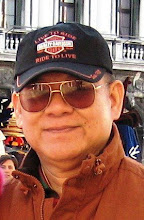



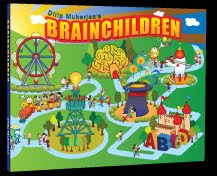



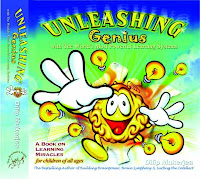
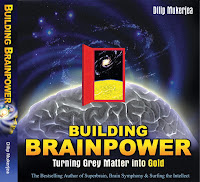
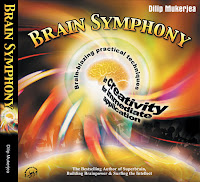





No comments:
Post a Comment